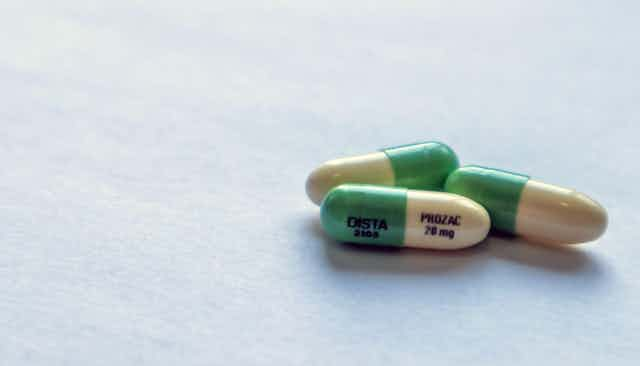Misinformation about antidepressants is rife and is probably fuelling their rise in use. Chief among these false ideas are:
Antidepressant withdrawal effects are mild and only last two to three weeks, with any severe symptoms interpreted as a relapse in depression.
Antidepressants are not addictive, so they can’t be that difficult to stop.
If you are having difficulty getting off your antidepressant, that shows you must need them.
You should be able to stop your antidepressants in a month or two.
Antidepressants work by growing new brain cells.
It is now established that antidepressants produce withdrawal symptoms that often last for many weeks, months or even years.
Claims that these symptoms only last for two to three weeks came from studies conducted by drug companies where people had only used antidepressants for a couple of months. A recent large study found that people who have been on antidepressants for years reported having withdrawal symptoms lasting for nine months on average.
About half of the people who stop taking antidepressants experience withdrawal. In surveys, half of the people who stop using these drugs report having severe withdrawal symptoms.
For some people, withdrawal symptoms are debilitating and prolonged. Symptoms include dizziness, headache, problems with memory and concentration, emotional disturbance and neurological symptoms such as sensitivity to noise and light, muscle spasms and sexual dysfunction, all of which can persist for years after stopping.
The longer the drugs are taken, the more severe (and probably long-lasting) the withdrawal effects.
Withdrawal effects occur from antidepressants because the brain adapts to their presence. This is often called physical dependence. Dependence occurs even though antidepressants do not make people high or cause craving and compulsion, which is the technical definition of “addiction”.
When antidepressants are stopped, the brain “misses” the drug and expresses this as withdrawal symptoms. These symptoms can last months or years because that is how long it can take for the brain to adjust to being without the drug.
Since withdrawal can cause emotional symptoms such as anxiety, low mood, crying spells and panic attacks, people often misinterpret these symptoms as a return of their mental health problem - that is, a relapse. Doctors, too, are often unaware of how common and severe withdrawal symptoms can be, and often mistake them for a relapse.
This can lead people who started antidepressants following a specific stressful event, like job loss, divorce or physical illness, to conclude that they have a long-term, relapsing illness when they do not.
There has also been a shift in understanding about how these drugs work. Many experts now agree that antidepressants do not work by correcting an underlying chemical imbalance. Some people suggest that antidepressants work by growing new brain cells but these claims are based on animal studies and this has never been shown in humans.

There is also no clear evidence that the growth of new brain cells is desirable. Indeed, it could reflect a negative effect, as damage to the brain also causes the growth of new neurons (as damage to the skin leads to the growth of new skin cells).
There are other explanations for how antidepressants exert their effects that are more plausible and supported by evidence. Antidepressants subtly change normal mental states, producing emotional numbing among other effects. This has been shown in healthy volunteers, confirming that emotional numbing is an effect of the drug and not just the depression.
This effect and other mental changes may account for the effect of antidepressants by suppressing the intensity of negative emotions. Or these effects may cue people to know they are taking a drug, which can amplify the placebo effect.
Guidelines are finally catching up
Advice from the UK’s National Institute for Health and Care Excellence (Nice) and the Royal College of Psychiatrists on how to safely stop antidepressants has changed markedly recently. Guidelines now recommend that after long-term use, antidepressants should be reduced in slow stages (tapering) over months and sometimes years down to very low doses.
As these doses are much smaller than can be made with widely available tablets, the guidelines call for the use of liquid versions of drugs (specially made up smaller dose tablets are another option).
The approach to tapering recommended by these updated guidelines is called “hyperbolic tapering”. It is based on the fact that very small doses of antidepressants have very large effects on the brain. This is often why the last few milligrams of a drug are the hardest to get off.
To account for the larger effects on the brain at lower drug doses, dose reductions have to be made in smaller and smaller amounts as you get down to lower doses – so that people make reductions of as little as 10% or 25% of their most recent dose. Studies show that this technique can help people who were previously not able to stop their medication with traditional approaches to safely stop it. We are currently testing this approach (hyperbolic tapering) in a large trial in Australia.
Unfortunately, other countries including Australia and the US have not updated their guidance and still recommend stopping antidepressants relatively rapidly. This can result in people experiencing severe withdrawal symptoms and falsely concluding that they cannot come off their medication.
The difficulty many experience in trying to stop antidepressants highlights the need to be much more careful in the prescribing of these drugs. The Nice guidelines recommend that antidepressants should not be offered as a first-choice treatment in mild depression. Even in severe depression the guidelines now recommend eight non-drug alternatives, including problem-solving therapy, exercise and a variety of other therapies.
This approach was also recently supported by NHS England in its announcement of an initiative to move away from the “pill for every ill” approach, to fund non-pharmaceutical alternatives for mental health problems, and to provide long-awaited services to help people stop antidepressants.

